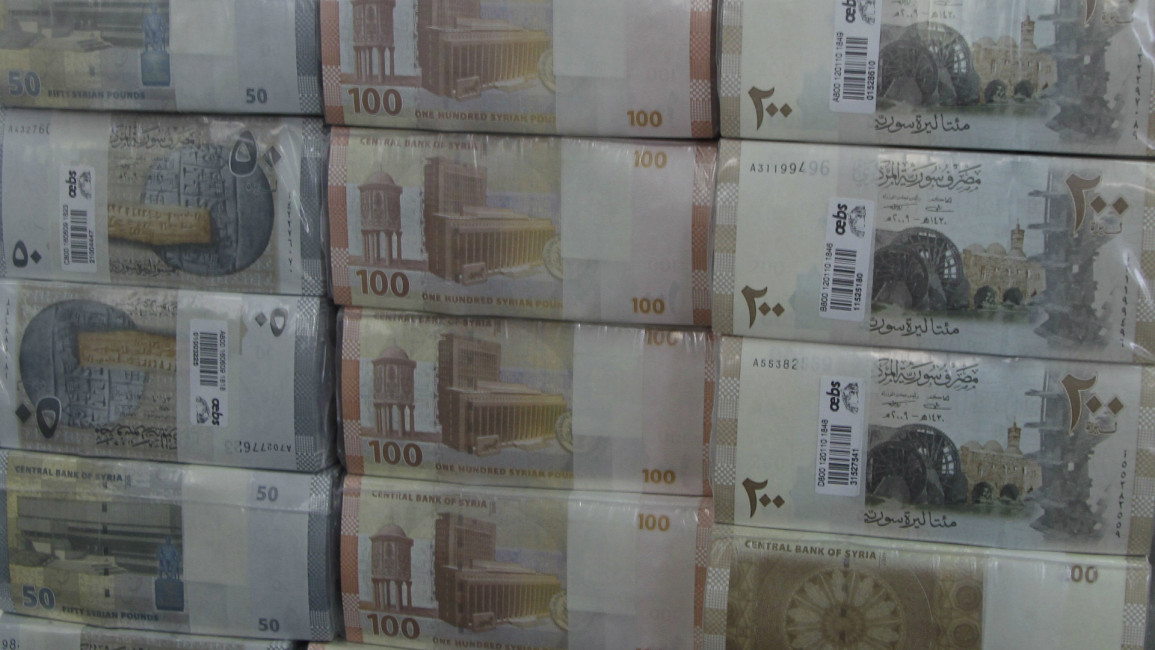Syria blames Lebanese 'manipulation' for currency slump
The Syrian government has blamed Lebanon's for a fall in the value of the Syrian pound, claiming that market traders in Beirut were manipulating its value for a quick profit.
The Syrian pound stood at 188.90 to $1 on Tuesday, as it continues a slide that began during the revolution in 2011.
Adib Mayaleh, the governor of Syria’s Central Bank, said: "Beirut's markets are manipulating and speculating the Syrian currency." He provided no proof.
However, Syriaonline.com reported that Mayaleh had on Sunday announced the bank would intervene to limit the volume of Syrian pounds available in Lebanon to curb the effect of currency manipulation.
Analysts told al-Araby al-Jadeed that the regime is evading its responsibility for devaluing of its currency.
Economist Ali al-Shami said the Syrian government was trying to evade responsibility for the 180 percent increase in currency inflation since the beginning of the revolution.
Shami added that the Syrian pound was suffering because of a lack of foreign exchange reserves in the central bank, as well as the decline in agricultural and industrial production and the halt in oil export revenues US dollars.
Economist Hussein Jamil told al-Araby that he expected the Syrian pound to fall further to 250 to $1 due the Syrian government lifting subsidies for diesel fuel as well as prince rises and a halt in industrial production.
"The Syrian Pound’s weakness will show when it loses all elements of power and stability," he said.
This is an edited translation of the original Arabic.

![Widespread famine is imminent in Gaza [Getty Images]](/sites/default/files/styles/image_330x185/public/2024-03/GettyImages-2015647000.jpg?h=199d8c1f&itok=mJWWP_Td)

